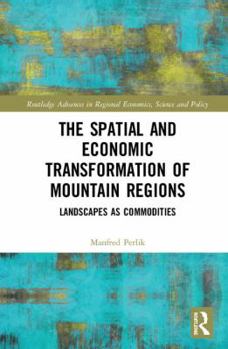The Spatial and Economic Transformation of Mountain Regions: Landscapes as Commodities
Select Format
Select Condition 
Book Overview
Mountain regions are subject to a unique set of economic pressures: they act as collective enterprises which have to valorize rare resources, such as spectacular landscapes. While primarily rural in nature, they often border large cities, and the development of industries such as hydroelectric power and the rapid development of tourism can bring about sweeping socio-economic change and vast demographic alterations.
The Spatial and Economic Transformation of Mountain Regions describes the socio-economic changes and spatial impacts of the last four decades, with the transformation of mountain areas held up as an example. Much of the real-world context draws on the Alps, spanning as they do the significant economies of France, Italy, Germany, Switzerland, and Austria. Chapters address academic discourse on regional development in these mountain areas and suggest alternative approaches to the liberal-productivist societal model.
This book will be essential reading for professionals, institutions, and NGOs searching for counter-models to the existing marketing approaches for peripheral areas. It will also be of interest to students of regional development, economic geography, environmental studies, and industrial economics.





